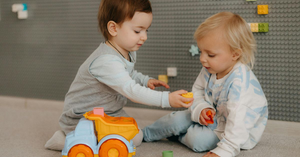Parenting is a challenging job, and sometimes frustration leads parents to raise their voices. While yelling might seem like an immediate way to get a child’s attention or enforce discipline, research shows that it can be harmful to a child’s emotional well-being. Yelling often stems from a parent’s frustration, but it can also escalate negative behaviors, damage trust, and weaken the parent-child bond.
Parenting without yelling is not just about keeping a calm tone; it’s about adopting strategies that encourage positive behavior and discipline without resorting to anger or intimidation. This article explores the negative effects of yelling, the reasons parents resort to it, and practical techniques to replace yelling with calm, constructive communication. Learning to parent without yelling can lead to healthier, more respectful relationships between parents and children, fostering emotional growth and long-term behavioral improvements.
The Harmful Effects of Yelling
Yelling may seem effective in the short term, but its long-term consequences can be damaging to a child’s emotional and psychological well-being. Children often interpret yelling as a sign of anger or rejection, which can undermine their sense of safety and security. Here are some of the key harmful effects of yelling:
- Emotional Damage: Yelling can cause children to feel fear, anxiety, or sadness. Over time, frequent yelling can lead to emotional insecurities, as children begin to internalize the idea that they are unworthy of love or that they are constantly doing something wrong.
- Damaged Self-Esteem: Children who are regularly yelled at may struggle with low self-esteem. They may come to believe that they are inherently bad or incapable, which can affect their confidence in other areas of life, including school, friendships, and later in life, work.
- Negative Behavior Escalation: Contrary to what parents might hope, yelling often leads to more negative behavior. When a parent yells, it triggers a stress response in the child’s brain, making them more likely to act out in anger or frustration themselves. This can create a negative feedback loop, where both parent and child are locked in a cycle of yelling and defiance.
- Weakened Parent-Child Bond: Consistent yelling can harm the trust and emotional bond between parent and child. Children may begin to feel distant or disconnected from their parents, leading to a lack of open communication and emotional support in the long term.
Understanding these harmful effects is essential for parents to recognize the importance of adopting more positive and effective discipline methods.
Why Parents Yell
There are several reasons why parents resort to yelling, many of which are tied to emotional triggers like stress, frustration, or lack of patience. Identifying the root causes of yelling is the first step toward addressing the behavior and making positive changes.
- Stress and Overwhelm: Parenting can be exhausting, and parents who are juggling work, household responsibilities, and childcare may feel overwhelmed. When children misbehave or fail to listen, parents might react with yelling as a way to release pent-up frustration.
- Lack of Immediate Results: Parents sometimes resort to yelling because it seems to produce an immediate response. When a child isn’t listening or is acting out, raising one’s voice can momentarily command attention, making it feel like a quick fix.
- Learned Behavior: Many parents were raised in homes where yelling was a common form of discipline. As a result, they may unconsciously replicate this behavior with their own children, believing it to be a normal or effective response to misbehavior.
- Loss of Control: In high-stress situations, parents might feel like they are losing control of the situation, and yelling becomes an attempt to regain authority or dominance over their children.
Recognizing these triggers helps parents become more mindful of their emotional responses and paves the way for healthier, more effective forms of discipline.
Alternatives to Yelling
Parenting without yelling requires adopting strategies that promote positive communication, patience, and consistency. Here are several effective alternatives to yelling that can help parents maintain discipline while fostering a healthier parent-child relationship:
- Calm Communication: Speak in a firm but calm tone. When children misbehave, instead of raising your voice, get down to their level and make eye contact. Use clear, direct language to explain what behavior needs to change and why it is important. Calm communication helps children feel respected and understood, making them more likely to cooperate.
- Time-Outs and Breaks: When emotions are running high, both parents and children can benefit from a brief separation. If a situation is escalating, take a time-out to calm down before addressing the issue. This prevents both yelling and further emotional escalation.
- Natural Consequences: Allow children to experience the natural consequences of their actions when appropriate. For example, if they refuse to wear a coat in cold weather, let them feel the discomfort. This teaches responsibility and accountability without the need for yelling or punishment.
- Positive Reinforcement: Rewarding good behavior is a powerful way to encourage children to make better choices. Praise your child when they follow instructions or display positive behavior. Positive reinforcement motivates children to continue acting in desirable ways.
- Modeling Emotional Regulation: Children learn how to handle emotions by observing their parents. Show your child how to stay calm and manage frustration in difficult situations. This helps children develop emotional intelligence and self-control.
These alternatives to yelling promote a healthier environment where discipline is effective but emotionally supportive.
Benefits of Calm Parenting
Calm parenting offers numerous benefits, both for the child’s emotional development and the overall parent-child relationship. By avoiding yelling and implementing constructive discipline strategies, parents can create a more positive and peaceful household environment. Here are some key benefits:
- Stronger Emotional Bonds: Calm parenting fosters trust and respect between parents and children. When children feel heard and understood, they are more likely to confide in their parents and seek guidance during difficult times, strengthening the emotional connection.
- Improved Behavior: Children who are disciplined in a calm and consistent manner are more likely to internalize positive behavior. Instead of acting out in response to yelling, they learn to manage their emotions and make thoughtful decisions.
- Better Emotional Regulation: By modeling calmness and emotional regulation, parents help their children develop these skills for themselves. Children who grow up in a calm environment are better equipped to handle stress, frustration, and conflict in healthy ways.
- Reduced Anxiety: Yelling can create a stressful home environment, leading to anxiety and fear in children. Calm parenting reduces these negative emotions, creating a sense of safety and security.
In the long term, calm parenting helps children develop into confident, emotionally intelligent individuals who are capable of managing their emotions and interacting positively with others.
Conclusion
Parenting without yelling is not just about controlling your voice—it’s about building a supportive, respectful, and effective relationship with your child. By adopting calm communication, setting clear boundaries, and using positive reinforcement, parents can guide their children’s behavior without resorting to anger or intimidation. The benefits of calm parenting extend beyond improved discipline; they include stronger emotional bonds, better behavior, and enhanced emotional development. By choosing calm over conflict, parents can create a nurturing environment where children feel valued, understood, and empowered to grow into confident, emotionally healthy individuals.








Be the first one to comment on this story.